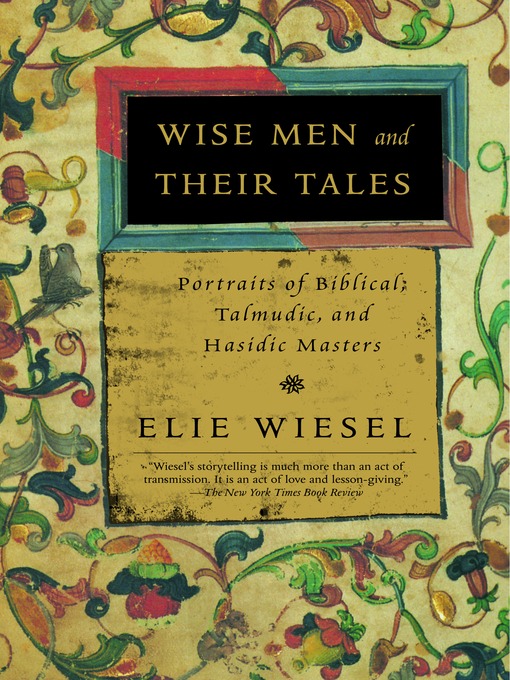
The matriarch Sarah, fiercely guarding her son, Isaac, against the negative influence of his half-brother Ishmael; Samson, the solitary hero and protector of his people, whose singular weakness brought about his tragic end; Isaiah, caught in the middle of the struggle between God and man, his messages of anger and sorrow counterbalanced by his timeless, eloquent vision of a world at peace; the saintly Rabbi Yehoshua ben Levi, who by virtue of a lifetime of good deeds was permitted to enter heaven while still alive and who tried to ensure a similar fate for all humanity by stealing the sword of the Angel of Death.
Elie Wiesel tells the stories of these and other men and women who have been sent by God to help us find the godliness within our own lives. And what interests him most about these people is their humanity, in all its glorious complexity. They get angry—at God for demanding so much, and at people, for doing so little. They make mistakes. They get frustrated. But through it all one constant remains—their love for the people they have been charged to teach and their devotion to the Supreme Being who has sent them. In these tales of battles won and lost, of exile and redemption, of despair and renewal, we learn not only by listening to what they have come to tell us, but by watching as they live lives that are both grounded in earthly reality and that soar upward to the heavens.
-
Creators
-
Publisher
-
Release date
January 14, 2009 -
Formats
-
Kindle Book
-
OverDrive Read
- ISBN: 9780307561244
-
EPUB ebook
- ISBN: 9780307561244
- File size: 2023 KB
-
-
Accessibility
-
Languages
- English
-
Reviews

Loading
Formats
- Kindle Book
- OverDrive Read
- EPUB ebook
subjects
Languages
- English
Why is availability limited?
×Availability can change throughout the month based on the library's budget. You can still place a hold on the title, and your hold will be automatically filled as soon as the title is available again.
The Kindle Book format for this title is not supported on:
×Read-along ebook
×The OverDrive Read format of this ebook has professional narration that plays while you read in your browser. Learn more here.